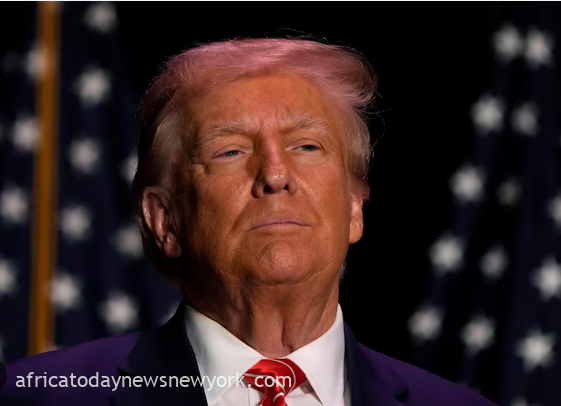Federal prosecutors, on Monday, made an expedited request to the US Supreme Court, seeking a swift ruling on whether former President Donald Trump is immune from prosecution.
The objective is to proceed with the scheduled trial on charges of conspiring to overturn the 2020 election.
‘This case presents a fundamental question at the heart of our democracy: whether a former president is absolutely immune from federal prosecution for crimes committed while in office,’ Special Counsel Jack Smith said in a filing to the nation’s highest court.
Smith appealed to the Supreme Court, where a 6-3 conservative majority, comprising three justices nominated by Trump, is in place, asking for a prompt ruling.
‘The United States recognises that this is an extraordinary request,’ the special counsel said. ‘This is an extraordinary case.’
‘It is of paramount public importance that respondent’s claims of immunity be resolved as expeditiously as possible — and, if respondent is not immune, that he receive a fair and speedy trial on these charges,’ Smith said.
The Supreme Court declared its commitment to an expedited examination of Smith’s petition to take up the case, directing Trump’s attorneys to state their position on the special counsel’s request by December 20.
Washington is slated to host the historic trial of the former Republican president, commencing on March 4, 2024.
Read also: Civil Fraud Trial: Trump Cancels Plans To Testify In New York
Trump’s lawyers have repeatedly aimed for trial postponements until after the November 2024 election, relying on the argument that a former president is shielded by “absolute immunity” from prosecution for actions during his White House tenure.
US District Judge Tanya Chutkan, who is to preside over the first ever criminal trial of a former president, rejected the immunity claim on December 1.
‘Whatever immunities a sitting president may enjoy, the United States has only one Chief Executive at a time, and that position does not confer a lifelong ‘get-out-of-jail-free’ pass,’ Chutkan said.
‘Defendant’s four-year service as Commander in Chief did not bestow on him the divine right of kings to evade the criminal accountability that governs his fellow citizens,’ she added.
Trump’s legal representatives, advocating for the frontrunner in the 2024 Republican presidential race, have appealed Chutkan’s decision to a federal appeals court.
Smith is seeking an emergency resolution by requesting the Supreme Court to skip the appeals court and take up the case directly.
In his filing, Smith said ‘a cornerstone of our constitutional order is that no person is above the law.’
‘The force of that principle is at its zenith where, as here, a grand jury has accused a former President of committing federal crimes to subvert the peaceful transfer of power to his lawfully elected successor,’ the special counsel said.
‘Nothing could be more vital to our democracy than that a president who abuses the electoral system to remain in office is held accountable for criminal conduct.’
A Trump spokesperson denounced Smith’s move, saying in a statement there is ‘no reason to rush this sham to trial except to injure President Trump.’
Carl Tobias, a University of Richmond law professor, told AFP Smith’s request is a rare procedure but he makes ‘compelling arguments.’
‘Smith essentially contends that the future of the US as a functioning democracy is at stake,’ Tobias said.
In August, Trump was formally charged for attempting to overturn the results of the November 2020 election, won by Democrat Joe Biden, in a coordinated effort that culminated in the violent attack by his supporters on the US Capitol on January 6, 2021.
The ex-president faces allegations of attempting to disenfranchise American voters through his unfounded assertions that he won the election.
Smith has additionally petitioned the Supreme Court to determine whether Trump’s prosecution infringes upon constitutional safeguards against double jeopardy, which prohibits being tried twice for the same crime.
The Democratic-led House of Representatives impeached Trump on charges of “incitement of insurrection” in the aftermath of the Capitol attack, yet the Senate later acquitted him.
Scheduled for January 5, the next conference of the nine Supreme Court justices will determine the acceptance of new cases, as the ongoing court term is set to conclude in June.
